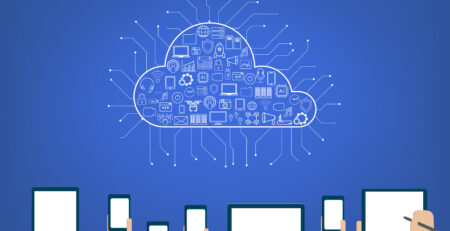AI-Driven Automation: Harnessing Intelligent Automation
According to a 2022 IBM Global AI Adoption Index report, 35% of companies are already leveraging AI automation in their operations, with an additional 42% actively exploring its potential. This dynamic adoption reflects the growing recognition of AI’s transformative power. As businesses strive for greater efficiency, enhanced decision-making, and improved customer experiences, embracing AI automation has become imperative. In this blog, we delve into the potential benefits and risks of AI in the workforce, along with strategies to harness its power while minimizing negative impacts.
~Source
Introduction
The advent of Artificial Intelligence (AI) has brought a profound shift in the way businesses operate and innovate. In the age of AI, organizations are increasingly embracing digital transformation to stay competitive and relevant. One of the most transformative aspects of this journey is the integration of intelligent automation. In this blog, we explore the powerful impact of AI-driven automation on digital transformation and how it empowers organizations to unlock new levels of efficiency, productivity, and innovation.
If you want to know more about Digital Transformation, you can read our other in-depth blogs on The future of digital Transformation, unleashing its key drivers, steps to make a cultural shift in the organization that embraces digital transformation and a transformation that puts customer at its core. You can also read blogs on Data-Driven Decision Making and the role of emerging technologies.
The Rise of AI-Driven Automation
Intelligent automation, powered by AI technologies like machine learning, natural language processing, and robotic process automation (RPA), has revolutionized business processes. This amalgamation of human intelligence and machine capabilities enables businesses to automate repetitive tasks, gain actionable insights from vast datasets, and make data-driven decisions.
Accelerating Digital Transformation
Intelligent automation serves as a catalyst for digital transformation initiatives. By streamlining processes and augmenting human capabilities, it expedites the pace of transformation across various industries. Tasks that were once manual and time-consuming can now be executed with unparalleled speed and precision.
Enhanced Customer Experience
AI-driven automation contributes significantly to enhancing customer experiences. Chatbots and virtual assistants offer personalized and round-the-clock customer support, resolving queries and providing real-time assistance. This seamless and instant customer service fosters loyalty and satisfaction.
Empowering Data-Driven Decisions
The integration of intelligent automation enables organizations to harness the full potential of data. AI algorithms analyze vast amounts of structured and unstructured data, uncovering hidden patterns and insights. This data-driven approach empowers decision-makers to make informed choices, optimize strategies, and identify new business opportunities.
Redefining Workforce Dynamics
Contrary to fears of job displacement, intelligent automation redefines workforce dynamics. Rather than replacing human workers, it augments their capabilities. Mundane tasks are automated, freeing up employees to focus on higher-value tasks that require creativity, critical thinking, and problem-solving.
Process Optimization and Efficiency
Intelligent automation optimizes business processes, eliminating bottlenecks, and reducing operational costs. It enhances efficiency by minimizing errors, ensuring consistency, and enabling continuous process improvement.
Mitigating Risks and Security
AI-driven automation enhances security measures, identifying and mitigating potential risks and vulnerabilities. Advanced machine learning algorithms analyze data patterns to detect anomalies and protect against cyber threats.
Ensuring Regulatory Compliance
In highly regulated industries, intelligent automation ensures adherence to complex compliance requirements. It maintains accurate records, performs audits, and enforces security protocols to comply with regulatory standards.
Scalability and Adaptability
The scalability of intelligent automation makes it suitable for organizations of all sizes. Whether a small startup or a large enterprise, AI technologies can be tailored to fit specific business needs and grow alongside the organization.
Conclusion
Digital transformation in the age of AI is a game-changer for businesses seeking to remain agile, innovative, and customer-centric. Intelligent automation revolutionizes workflows, drives efficiencies, and empowers employees to focus on strategic and creative endeavors. By leveraging AI-driven automation, organizations can accelerate their digital transformation journey, unlocking the full potential of data, and making data-driven decisions that shape their future success.
To harness the transformative power of intelligent automation, organizations must foster a culture of continuous learning and embrace the possibilities offered by AI technologies. As the digital landscape continues to evolve, the integration of intelligent automation becomes a strategic imperative, driving growth, competitiveness, and sustainable success in the digital age.
You can also get the ultimate guide to Digital Transformation, here.







